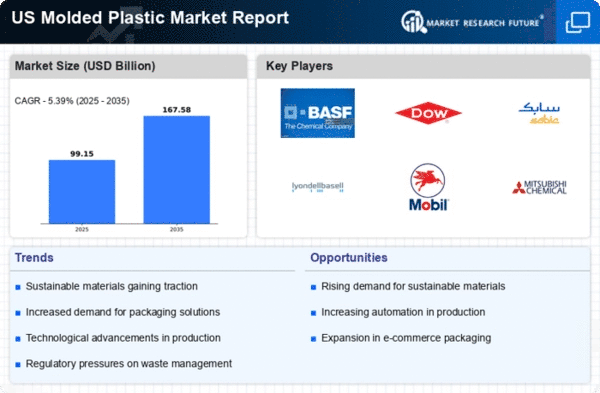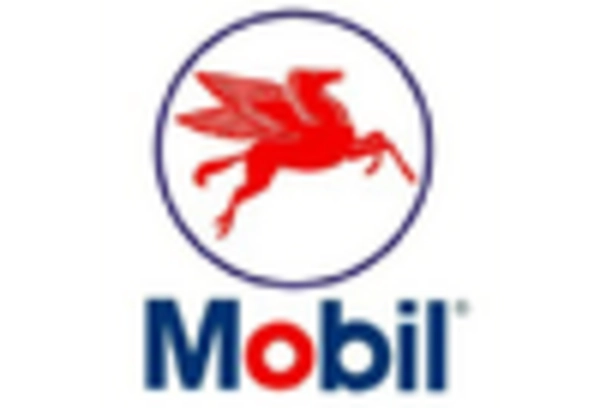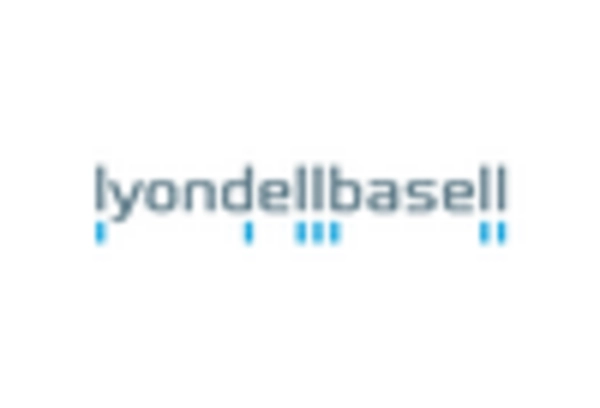The molded plastic market in the US is characterized by a dynamic competitive landscape, driven by innovation, sustainability, and strategic partnerships. Key players such as BASF SE (Germany), Dow Inc. (US), and ExxonMobil Chemical (US) are actively shaping the market through their operational focuses. BASF SE (Germany) emphasizes innovation in sustainable materials, while Dow Inc. (US) is enhancing its product portfolio through digital transformation initiatives. ExxonMobil Chemical (US) is concentrating on optimizing its supply chain to improve efficiency and reduce costs. Collectively, these strategies contribute to a competitive environment that is increasingly focused on sustainability and technological advancement.In terms of business tactics, companies are localizing manufacturing to better serve regional markets and optimize supply chains to enhance responsiveness. The market structure appears moderately fragmented, with several key players exerting influence over various segments. This fragmentation allows for niche players to thrive, while larger corporations leverage their scale to drive innovation and efficiency.
In October BASF SE (Germany) announced a partnership with a leading automotive manufacturer to develop bio-based molded plastic components. This strategic move underscores BASF's commitment to sustainability and positions it favorably within the automotive sector, which is increasingly prioritizing eco-friendly materials. The collaboration is expected to enhance BASF's market share while aligning with broader industry trends towards sustainable manufacturing practices.
In September Dow Inc. (US) launched a new line of high-performance molded plastics designed for the electronics industry. This initiative reflects Dow's focus on innovation and its intent to capture a larger share of the rapidly growing electronics market. By introducing advanced materials that meet the stringent requirements of electronic applications, Dow is likely to strengthen its competitive position and appeal to a broader customer base.
In August ExxonMobil Chemical (US) completed a major expansion of its production facility in Texas, aimed at increasing output of molded plastic products. This expansion is strategically significant as it enhances ExxonMobil's capacity to meet rising demand while improving supply chain reliability. The investment is expected to yield substantial returns, positioning the company to better compete in a market that is increasingly driven by efficiency and responsiveness.
As of November current trends in the molded plastic market include a pronounced shift towards digitalization, sustainability, and the integration of AI technologies. Strategic alliances are becoming increasingly vital, as companies seek to leverage complementary strengths to enhance their competitive edge. The landscape is evolving from traditional price-based competition to a focus on innovation, technological advancement, and supply chain reliability. This shift suggests that companies that prioritize these areas will likely emerge as leaders in the molded plastic market.
















